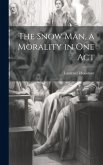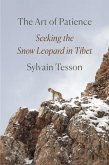The content in this work is fiction, fiction in the sense that the main character through which the eyes of this metaphysical and philosophical journey is viewed, Charlie, is not a real character, nor are his counterparts and foils through which he explores various topics such as love, the meaning of existence or the origins of the cosmos and how our understanding of these abstract ideas have evolved since the dawn of civilization. But like any work of fiction, the characters do have some basis in real experience, from which of course nothing can be created. The intent of the work is to explore the foundations and evolution of knowledge and the boundaries between reason and faith, boundaries which from the author?s perspective are not quite as clear as some might have us believe. And the point of going through the exercise, the purpose as it were, is not only for the author to come to a better understanding of how all our modern branches of science hang together, how they have come to be given their socio-political and historical context, but also for others to share in his journey and perhaps learn something along the way. Since the birth of language and thought even, going back thousands of years and even prior to the dawn of civilization itself, mankind has attempted to answer two fundamental questions, questions that have spurred countless creative forces and branches of thought over the centuries; namely who we are and from whence we came. The answers to these questions, no matter what race, religion or creed the seeker might be, or what philosophy or religion they might adhere to, are inextricably linked to each other. This journey of trying to understand our place in the world, and the origins of the universe itself, is an ageless quest that in many respects distinguishes mankind from the rest of the creatures on the planet. Furthermore, this very same quest to answer the same questions fuels not only scientific development but also is the basis for theology and religion, both approaching the same set of questions with a different set of tools and with a different mindset but both trying to answer the same set of basic questions as to who we are and how we got here. From the author?s perspective, in order to answer these questions effectively in the Information Age, we should have at least some understanding of the history of our answers to these questions as they have evolved over time. For we all build our collective knowledge on those that have come before us, whether we recognize this or not. And in turn, that in building this bridge, a common metaphor used throughout the work, we must leverage the tool of metaphysics, a term originally coined by Aristotle but in the context of this work implies a level of abstraction that sits above physics as we understand it in today?s world but also provides a conceptual underpinning to all of the branches of knowledge that collectively make up our ?understanding? of the world and out place in it. In doing so, it is the author?s hope that we can not only come to a more complete and fuller understanding of the answers to these basic human questions that have plagued mankind since time immemorial, but also at the same time perhaps develop a deeper understanding of the problems of life in the Information Age and how we might best approach them, or cope with them, in way that not only benefits ourselves as individuals but to society as a whole, to which our individual well-being depends upon whether or not we recognize it or not.
Hinweis: Dieser Artikel kann nur an eine deutsche Lieferadresse ausgeliefert werden.
Hinweis: Dieser Artikel kann nur an eine deutsche Lieferadresse ausgeliefert werden.








